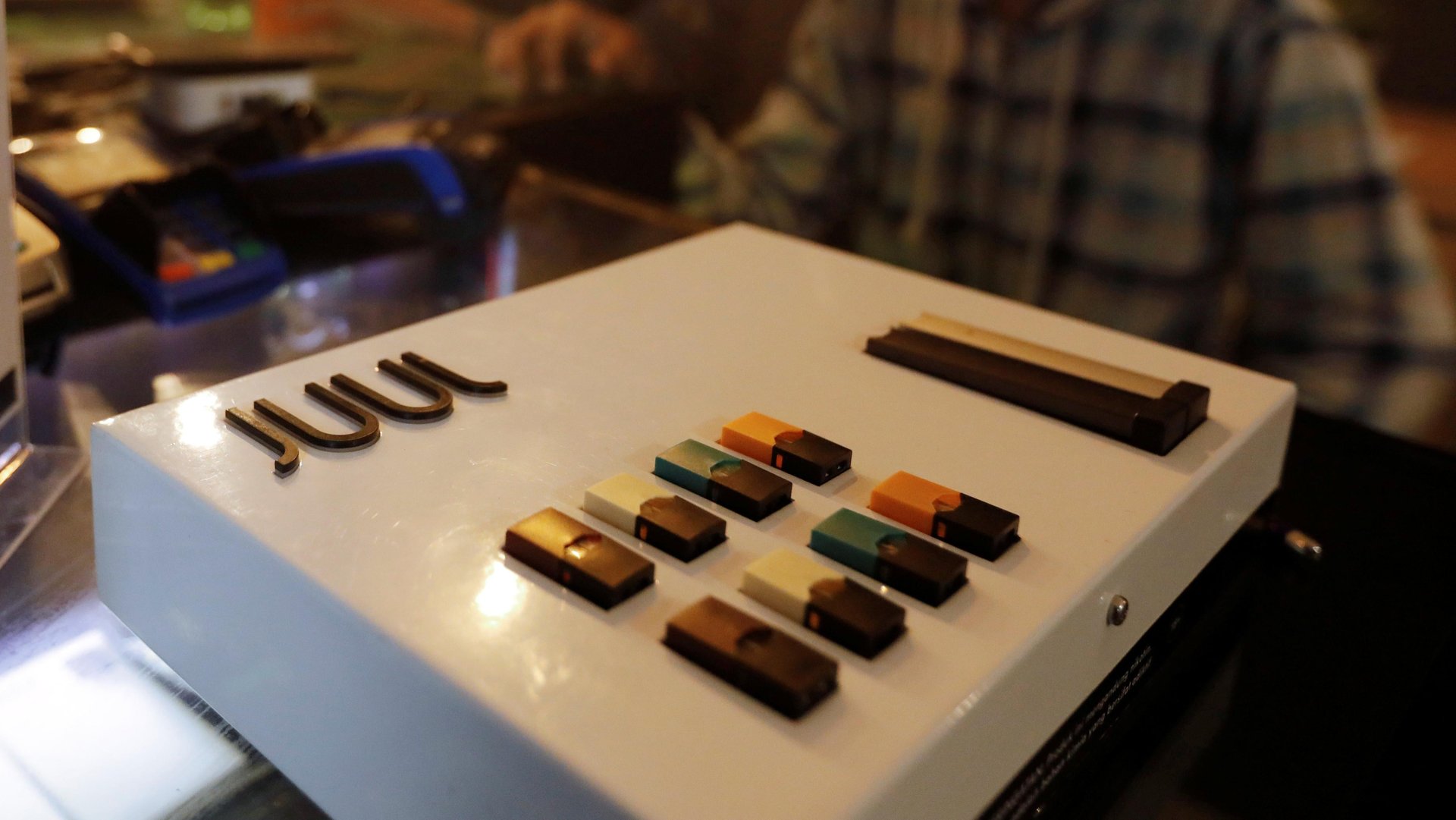Juul’s going up in smoke. Is Puff Bar next?
The US FDA is cracking down on e-cigarette companies that are getting teens hooked onto vaping

Once an industry leader, Juul is now on the verge of bankruptcy.
The e-cigarette company that popularized sleek, flash-drive-shaped vaporizers just scrapped plans for overseas expansion and refinanced some debt, according to the Wall Street Journal. These decisions come as the manufacturer tries to stave off a ban and save its business, all while reaching deep into its coffers to pay hefty fines.
The firm, which had around 3,000 workers in 2019, has been struggling to retain operations and staff around the world. Its headcount now is a far lower 1,200, including 100 positions outside the US.
Juul’s unraveling
2015: Pax Labs introduces Juul in the US market in June
2017: Pax Labs spins out Juul Labs as its own entity focused on nicotine e-cigarettes. During the course of the year, it sells 16.2 million products, claiming one in three e-cigarettes sold in the US
2018: FDA starts probing underage sales of Juul products and asks the company to submit marketing documents. In September, it gives Juul and four of its competitors 60 days to share plans of how they intend to combat youth use. In November, Juul pulls fruity flavors to curb teen use; sticks to just tobacco, mint, and menthol. The next month, Marlboro maker Altria Group invests $12.8 billion for a 35% stake in Juul, valued at $38 billion at the time
2019: The CDC starts probing Juul’s marketing among teens, which included buying ads on even Cartoon Network. The American Medical Association (AMA) discourages the public from using e-cigarettes amid a lung illness outbreak. Several states start to take legal action against Juul. CEO Kevin Burns is replaced by KC Crosthwaite, and Juul suspends broadcast, print, and digital advertising in the US. The brand captures 75% of the e-cigarette market
2020: In February, Juul halts sales in Indonesia. Over the course of the year, Juul decides to stop selling in major European markets like Austria, Belgium, Portugal, France, Spain, and Germany.
2021: In May, Juul Labs pays $51,000 to fund a special edition American Journal of Health Behavior with 11 articles authored by Juul scientists or contractors that on the whole found reductions in adult smoking rates as smokers switched to electronic nicotine products, which the public can access for free. A month later, Juul agrees to a $40 million settlement in a North Carolina teen advertising lawsuit. In September, Juul launches JUUL2, with much lower concentration of nicotine—in line with European laws—in the UK exclusively
2022: In April, Juul pays Washington $22.5 million to settle a deceptive advertising lawsuit. Two months later, the FDA bans the sale of all Juul products. The following month, it temporarily suspends the order after Juul wins an appeal in court. As of Aug. 15, there’s 4,013 lawsuits against Juul. In September, Juul agrees to pay a whopping $440 million to 33 states for spreading the vaping epidemic among teens. In the same month, Altria looked to end its non-compete agreement with Juul to develop its own e-cigarettes
American teens’ vaping epidemic
As it grapples with mounting problems, Juul has lost its dominant market position. But teens are hooked on e-cigarettes, and there’s no shortage of rivals to supply them with their tobacco product of choice.
Nearly 2.55 million middle- and high-school students have vaped at least once in the past 30 days, according to new federal data based on a national survey the Centers for Disease Control and Prevention (CDC) conducted between Jan. 18 and May 31.
Is Puff Bar FDA’s next target?
Puff Bar is currently the most popular brand among teens who vape. With increased popularity, comes greater scrutiny.
In 2020, the FDA forced the disposable e-cigarettes off the US market—or, as the company claims, it went into hibernation to innovate. Either way, there was silence. But soon after, it exploited a loophole to get back in business. Puff Bar launched reformulated products containing synthetic nicotine to circumvent the oversight tobacco products face.
In March this year, though, a new bill gave FDA power over even synthetic nicotine.
The California-based company is back under the scanner. Puff Bar is selling its e-cigarettes unlawfully without FDA authorization, according to a warning letter sent by the agency to Puff Bar yesterday (Oct. 6). Puff Bar, which claims its application is pending approval, has 15 days to send a written reply.
Related stories
🚬 With its e-cigarette authorization, the FDA is buying into Big Tobacco’s narrative
Juul and Puff Bar were approached for comment on this story.